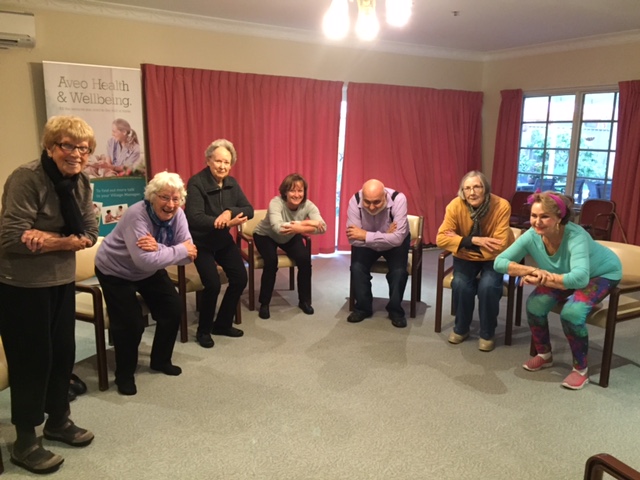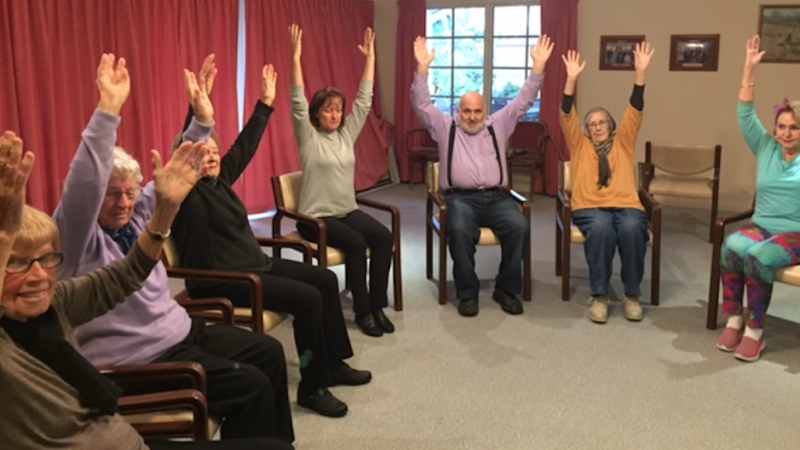“Use it or lose it!”
I’m sure you’ve heard that phrase if you’ve ever seen a physiotherapist or a GP about wanting to improve your health.
The advice is more or less about doing a set of exercises or joining an exercise class to help you to regularly move your body in ways to improve or maintain your current functional ability.
Or maybe you have come across an ad for a new exercise class in your area and thought to yourself, “Nah… that’s not for me” or “that sounds like too much of an effort”. You’re not alone in this and it’s usually because the benefits of joining an exercise class are not always well understood or obvious.
Once you understand that an exercise class offered by your village or community centre is not just “exercise” but also delivers benefits that reach the mental, social and of course physical realms, then you may be more open to joining a class.
Let me share with you some of these benefits so that you can judge for yourself:
1. Get active!
Now, more than ever, there is strong evidence that regular physical activity is associated with better brain function and reduced risk of cognitive decline and dementia. Exercise gives our brain a healthy boost!
Here are some ways it does that:
- Exercise increases blood flow to the brain, which then stimulates growth of brain cells and the connections between them.
- Regular exercise reduces the risk of high blood pressure, obesity, diabetes and high cholesterol, which are associated with an increased risk of cognitive decline and dementia.
- Exercise reduces depression and increases happy hormones as it pumps oxygen into the brain. All of this helps to lessen the effects of depression.
The National Physical Activity Guidelines recommend we accumulate 2½ to 5 hours a week of moderate intensity physical activity, or 1¼ to 2½ hours a week of vigorous intensity activity – or a combination of both. Before you get overwhelmed with those numbers, try breaking it down like the following example to see how doable it can be.
Find yourself one or two exercise classes (strength-based exercise, either on land or in water) a week and supplement this with 30-45 minutes of walking two or three times a week. Once you get into the habit of exercising, you’ll wonder why you waited so long!
2. Mental challenge
Scientists have found that challenging the brain with new activities helps to build new brain cells and strengthen connections between them.
This helps to give the brain more ‘reserve’ or ‘back-up’ so it can cope better and keep working properly if any brain cells are damaged or die. As we grow older we tend to prefer doing the things we’ve always done, tasks that we are familiar with – and although that’s understandable, the brain benefits by having to tackle something it doesn’t know.

For example, if you turn up to a new exercise class there are several factors that will challenge the brain in a positive way.
Firstly, you will potentially meet some new faces – from the instructor to the participants – who may or may not be from your village or immediate neighbourhood. This will give you a great opportunity to meet new people and form new relationships, which are all great things for the brain.
Secondly, you’ll have to learn the class itself. The combination of new movements, following instructions and staying on your feet, all at the same time, will certainly challenge the brain to work hard and keep it active.
3. Social activity
Humans are naturally social beings and usually prefer the company of others, rather than existing in isolation.
It’s always much more fun doing things with other people, to share experiences such as going to the movies or a concert, taking off on a trip somewhere or discovering a new restaurant. To help look after your brain health, it’s important to be sociable with people whose company you enjoy, and in ways that interest you.
Social engagement, like a fun exercise class, has been found to have benefits for other health factors related to cognitive functioning, such as vascular conditions and depression.
Meeting and interacting with other residents or neighbours is mentally stimulating and may contribute to building brain reserve, which then contributes to a lower dementia risk.
So, with those things in mind, my challenge to you is to try out your nearest exercise class and see if you can have some fun with it. You’ve got nothing to lose!
If you are convinced that this is the best way forward for you but are unsure which exercise class to join, speak with your GP or your physiotherapist.
Article written by Tony Kim, TPC Physiotherapist

 1300 797 793
1300 797 793
